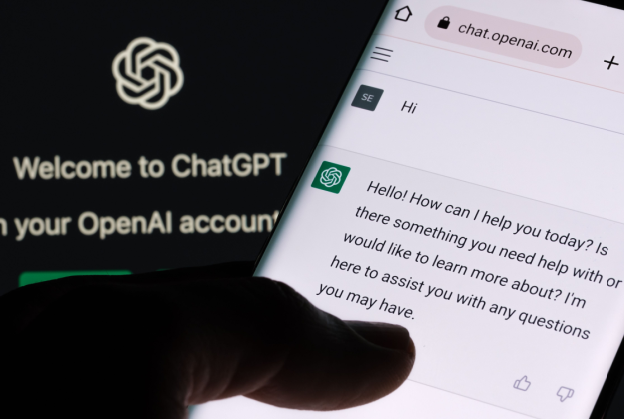In this age of advanced technology and artificial intelligence, chatbots like OpenAI’s ChatGPT have become increasingly prevalent in our daily lives. They offer convenience, assistance, and valuable insights. ChatGPT, powered by advanced artificial intelligence, is a remarkable tool that has transformed the way we interact with technology. It can engage in conversations, answer questions, and provide valuable insights. However, despite its usefulness, there are certain limitations and risks associated with sharing certain information with the tool. To protect ourselves and maintain a sense of security, there are five critical things that should never be shared with ChatGPT.
1. Personal Identifiable Information (PII)
Personal Identifiable Information (PII) encompasses a vast array of data that uniquely identifies an individual, ranging from basic details like full name and date of birth to more sensitive information such as social security numbers, addresses, phone numbers, and email addresses. The gravity of sharing PII with ChatGPT cannot be overstated. While AI platforms may not intentionally store or retain such information, their vulnerability to breaches makes them susceptible to data theft. The consequences of such breaches can be severe, leading to identity theft, financial fraud, and even potential manipulation of personal records. Cybercriminals may exploit this data to impersonate individuals, gain unauthorized access to their accounts, or conduct phishing attacks. As users, we must exercise extreme caution in sharing any form of PII with AI-powered systems to safeguard our identities and financial well-being.
2. Financial and Banking Information
The realm of financial and banking information is particularly sensitive, and it must never be divulged to ChatGPT or any AI system for that matter. This category of data includes credit card numbers, bank account credentials, and other payment details. To ensure the utmost security, it is vital to use encrypted and secure channels while engaging in any financial transactions online. The potential consequences of a breach of financial information are alarming, ranging from fraudulent transactions and drained bank accounts to a complete loss of financial stability. Users must always exercise caution and adhere to strict security protocols to safeguard their financial data.
3. Passwords and Login Credentials
Passwords and login credentials serve as the digital keys to our online identities and personal information. Sharing these sensitive access details with ChatGPT or any other AI system poses a significant risk. Sharing this type of confidential data opens the door for unauthorized access by malicious entities. Passwords, in particular, should be unique and strong for every online account, making it difficult for cybercriminals to exploit them. It is essential to refrain from sharing passwords with anyone, including AI systems, and enable additional security measures like two-factor authentication to provide an added layer of protection. This way, we can mitigate the risk of unauthorized access and maintain the integrity of our online identities.
4. Private or Confidential Information
Sharing private or confidential information with ChatGPT can have severe implications, both on a personal and professional level. AI systems lack the contextual understanding that humans possess, making them more susceptible to accidental disclosure of sensitive content. Revealing personal secrets, intimate details, or confidential work-related information to AI systems can lead to unintended exposure, compromising our privacy and reputation. In professional settings, divulging sensitive business information can lead to breaches of trust, potential legal issues, and harm to an organization’s competitive advantage. It is vital to exercise prudence and ensure that the information shared with AI systems is limited to what is necessary and appropriate for the intended purpose.
5. Proprietary or Intellectual Property
Intellectual property, including proprietary information, patented ideas, copyrighted material, and trade secrets, represents the creative and innovative endeavors of individuals and organizations. Sharing such intellectual property with ChatGPT can pose significant risks, including potential theft or unauthorized use. Protecting one’s intellectual property is crucial to preserve ownership rights and commercial value. Unauthorized dissemination of innovative ideas or proprietary knowledge can lead to legal disputes, loss of competitive advantage, and financial consequences. Users must be vigilant and refrain from disclosing any form of intellectual property to AI systems, ensuring that their creative works and innovations remain secure and protected.
The Importance of Data Security
It is essential to understand the significance of data security in order to better protect your data. As technology continues to advance, data breaches have become an increasingly common concern. Cybercriminals constantly seek to exploit vulnerabilities in systems to gain unauthorized access to sensitive information. There have been instances where AI-powered platforms like ChatGPT have been targeted. Notably, from June 2022 to May 2023, over 100,000 OpenAI ChatGPT account credentials of paid users were compromised and sold on dark web marketplaces. This incident serves as a stark reminder of the potential risks associated with sharing sensitive information with AI systems. While ChatGPT and similar AI technologies offer remarkable possibilities, it is crucial to exercise caution and be mindful of the information we share. Protecting our privacy and security in the digital age is paramount, and being aware of the data we provide to AI systems is essential in this endeavor. By understanding these limitations and responsibly using AI, we can fully harness the benefits while safeguarding our digital lives. Remember to refrain from sharing personal identifiable information, financial details, passwords, private or confidential information, and proprietary intellectual property with ChatGPT to mitigate potential risks and ensure a safer online experience for all. Always remember that safeguarding your privacy is of utmost importance in today’s ever-evolving digital age.




